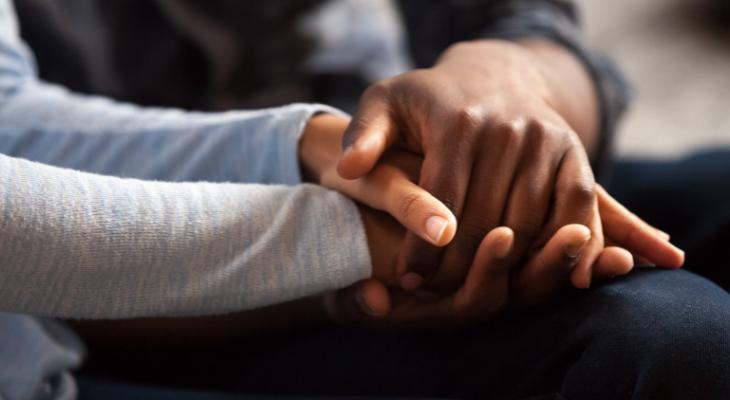How Love and Science Can End a Contagious Disease
January 25, 2022

Since the first cases of what we now know as AIDS were officially reported to the national Centers for Disease Control and Prevention – a shocking 40 years ago – we’ve seen life expectancies expand for people living with HIV/AIDS. Preventative medications like PrEP are dramatically decreasing the spread of the disease.
Dr. Anthony Fauci opened the 2021 United States Conference on HIV/AIDS by taking some time to look back at the history of this epidemic, as well as forward to what our future could hold. His reflections were paired with the release of the national HIV and AIDS strategy from the White House a few days prior that set goals to end the HIV epidemic in the United States by pursuing a 75% reduction in new HIV infections by 2025 and a 90% reduction by 2030. These goals are bold but within reach if we can make radical progress to destigmatize both HIV and AIDS across the U.S., specifically in the South and within communities of faith.
Our team at IFYC — Janett Cordovés, Don Abram and Noa Nakao — attended the conference as a part of our continued effort to learn from those with lived experiences and experts in the field of destigmatization. Their IFYC team works in partnership with Gilead Sciences and Wake Forest Divinity School’s COMPASS Initiative Faith Coordinating Center on the critical need to destigmatize HIV and AIDS.
How Men of Color Use Their Faith to Respond to HIV Related Trauma
IFYC program manager Don Abram shares the following reflection from the conference:
“Conversations around the ongoing HIV and AIDS epidemic are often shrouded in homophobic and transphobic language. As a queer man, I am sensitive to the insidious impact of framing the promulgation of the virus as an epidemic that exclusively impacts the LGBTQ+ community. The fallacious implication is that members of the LGBTQ+ community are more promiscuous and more sexually reckless in their sexual practices than others. In some faith-based spaces, religious practitioners even suggest that the epidemic is a God-ordained punishment directed at our communities. These assertions are fundamentally wrong and harmful to all those impacted by HIV and AIDS, not just individuals that identify as LGBTQ+.
“As a participant in the “How Men of Color Use Their Faith to Respond to HIV Related Trauma” session at the U.S. Conference on HIV and AIDS, the consequence of homophobic and transphobic language enveloping the broader HIV and AIDS conversation was evident. Straight men impacted by HIV and AIDS spoke candidly about the ways in which existing narrative around those impacted by the epidemic lead to the erasure of their own experiences. This results in material consequences, including a lack of access to spiritual, financial, and emotional resources. To better serve all who live with HIV and AIDS, we must work to dismantle antiquated myths about those impacted. We can start by ridding ourselves of ideologies such as homophobia that led us to believe that only LGBTQ+ people are affected by the epidemic. If we desire to truly end this health crisis, we must meet the needs of everyone, including straight men and women.”
How Faith Communities Can Work to End HIV/AIDS Stigma
At the HIV/AIDS conference, our IFYC team found that the experts reinforced the work and message of Gilead Sciences and Wake Forest Divinity School’s COMPASS Initiative Faith Coordinating Center on the critical need to address HIV and AIDS stigma. Below are a few of those barriers, and a list of individuals and organizations working to end stigma in their communities.
Tony Morrison, Senior Producer, Good Morning America, shares his story on living with HIV.
HIV Recovery Stories: Getting to Undetectable
We also need to ensure Black and Latinx queer and transgender individuals are part of the work from the beginning and are empowered to share, lead and prosper. Their stories will resonate with their community and help build trust and rapport between the community and the organization. Knowing your community’s digital literacy is also part of the linguistic barriers and cultural misunderstanding. For instance, if you share a ride-share promo code, you need to be certain your community has access to Wi-Fi, a phone, can download a new app onto their phone, and knows how and where to insert the code. Linguistic and cultural barriers will prevent people from using your much-needed resources and support
POZ is a magazine focused on people affected by HIV and AIDS that provides news, resources, and community for those attempting to cross these barriers.
Zakia McKensey, Executive Director and Founder, Nationz Foundation, models this kind of care.
Antoinette Jones, HIV Peer Specialist and Advocate, SisterLove, Inc.
Our experience at the conference emphasized that the science is available; the barriers are logistics and stigma. The conversations and sessions at the conference affirm our partnership with Wake Forest University Divinity School and Gilead Science, in working with Historically Black Colleges and Universities and Hispanic Serving Institutions in the Southern U.S. to destigmatize HIV and AIDS. We need to reach people, be with them, and partner with the organizations already in the trenches doing this work.
Read more about IFYC’s partnership with Wake Forest University and our work to destigmatize HIV and AIDS and join IFYC on February 7 for the Answering the Call: Black Faith Communities & the HIV & AIDS Epidemic webinar.
Share
Related Articles
American Civic Life
American Civic Life
American Civic Life
We Commemorate, We Commit: Out of Catastrophe, a Conversation on Connection and Repair




